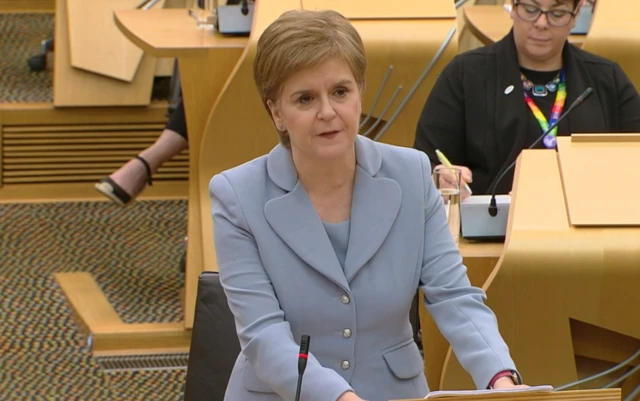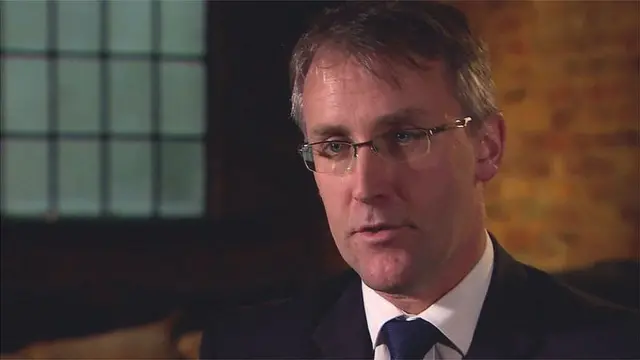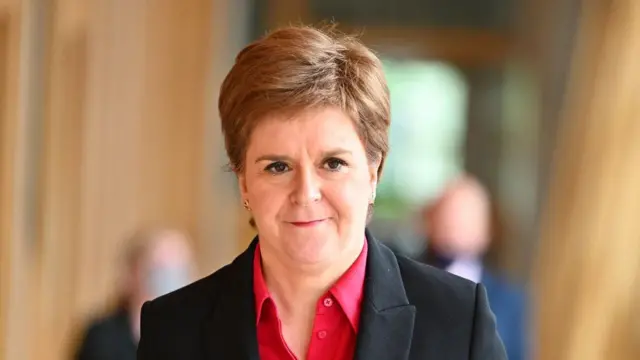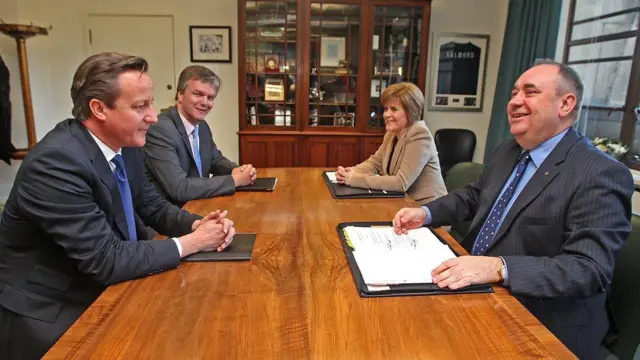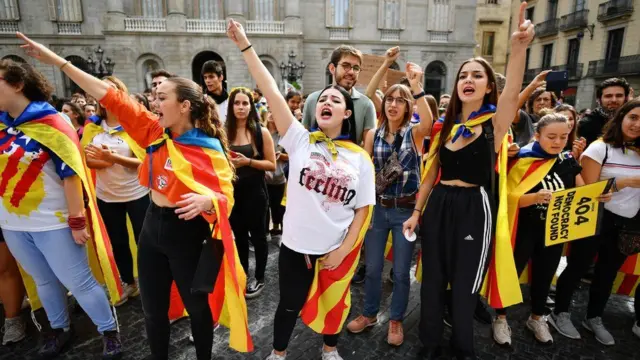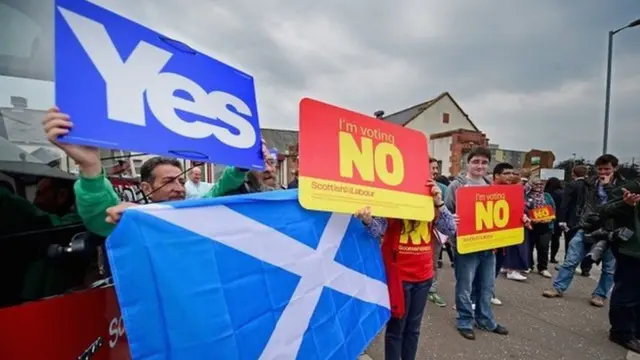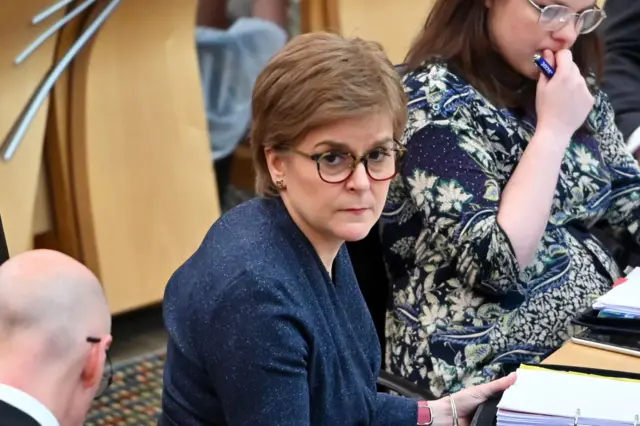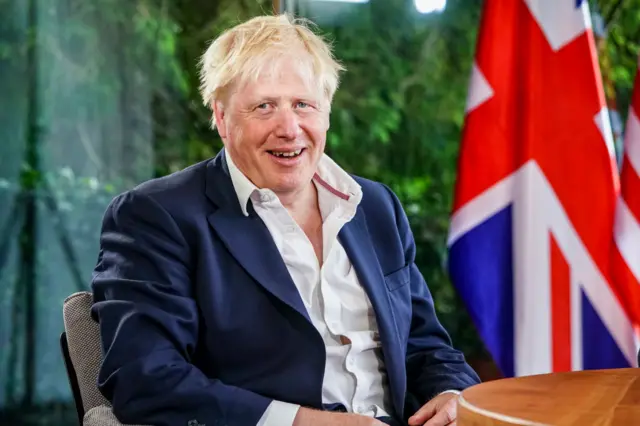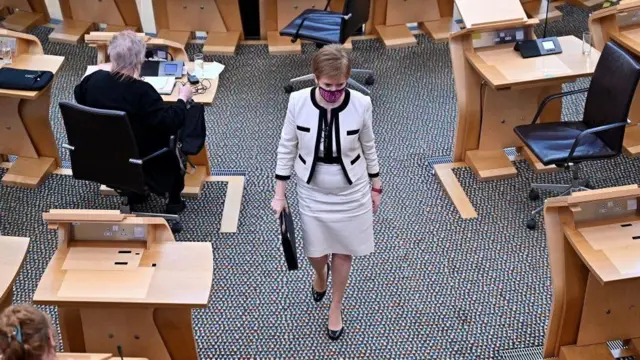'I fervently hope that the Tories lose the next election'published at 14:39 BST 28 June 2022
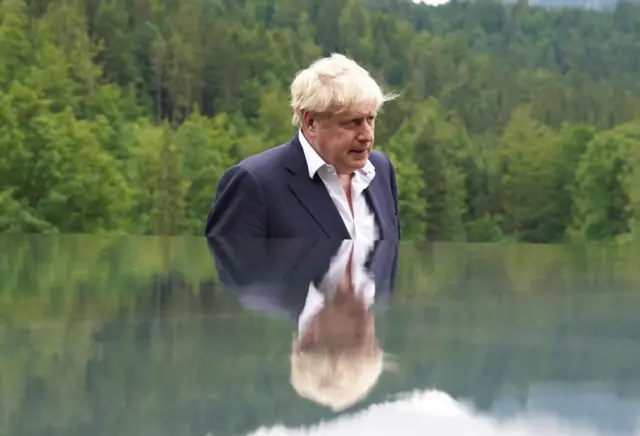 Image source, Getty Images
Image source, Getty ImagesMs Sturgeon says she hopes Boris Johnson's Tories lose the next general election
"Independence is about equipping ourselves to navigate the future guided by our own values, aspirations and interests," continues the FM.
Ms Sturgeon says it's about Scotland fulfilling its potential.
"I fervently hope that the Tories lose the next election. They thoroughly deserve to."
She turns to Labour, saying it won't take Scotland back into the EU or even the single market and neither will the Lib Dems.
